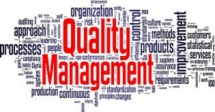|
|
Anti-money Laundering (AML) Training Course For Board Of Directors And Senior ManagementBy: Skills for Africa Training InstituteUnited Arab Emirates 13 - 24 May, 2024 12 days
USD 3,000 |
Venue: Dubai
Other Dates
| Venue | Date | Fee | |
|---|---|---|---|
| Nairobi, Kenya | 10 - 21 Jun, 2024 | USD3000 | |
| Nairobi, Kenya | 08 - 19 Jul, 2024 | USD3000 | |
| Nairobi, Kenya | 12 - 23 Aug, 2024 | USD3000 | |
| Nairobi, Kenya | 09 - 20 Sep, 2024 | USD3000 | |
| Kigali, Rwanda | 14 - 25 Oct, 2024 | USD3950 | |
| Mombasa, Kenya | 11 - 22 Nov, 2024 | USD3000 | |
| Nairobi, Kenya | 09 - 20 Dec, 2024 | USD3000 |
As per FATAF’s International Guidelines, The Board of Directors of any financial institution has a fiduciary duty towards the organization to ensure that there is a robust compliance program in place. The Board needs to set “the Tone from the Top”, establish an effective control framework and effectively promote a “culture of compliance”. A high-risk compliance responsibility entails the flow of critical information to risk committees and boards and should be of relevance to the overall governance purpose. Senior management in most financial institutions have well-established procedures and policies for dealing with overall operational risk’s like credit risk or market risk, but the practice of dealing with Know Your Customer (KYC) and Anti-Money Laundering (AML) risk is yet to mature. The AML/KYC compliance looks into transfer or conversion of illicit gotten sources (black money) to legally accessible/taxable (white money) funds, primarily using the financial institutions as a conduit for concealment and disguise activities to happen.
Technically speaking, Board members are not required to be experts at AML knowhow, but, it’s highly recommended and comes as industry best practice for BoD’s to acquire an understanding of fundamental aspects of AML Risk Control Framework, in order to effectively exercise their oversight responsibilities, as mandated by almost all the national financial regulatory authorities. Under this understanding of the regulatory environment in which the firm operates, the Board of Directors and Sr. Management must have a basic working knowledge of applicable regulations, including relevant requirements around the globe.
This course will give the BoD’s and Sr. Mgmt. an understanding of the said framework and will prove to be a means to appreciate the law enforcement mechanisms working to maintain such said equilibrium and the resultant consequences of non-compliance with these regulations viz. Reputation management, Shareholder’s interests, legal ramifications, consequences of adherence failures, etc. This training course designed for the Board Members, Heads of sub-committees and the Senior Management will equip them to have a clear compliance understanding towards transparency and visibility of the enterprise-wide compliance operations and adherence duties.
COURSE OBJECTIVES
At the end of the course, participants will be able to:
- Understand and be equipped for regulating money laundering controls, it’s set-up and requisite governance for regulatory violation prevention-oriented approach
- Understanding organizational vulnerabilities to (or complicit in) money laundering and measures to tighten the controls
- Instructive understanding and case studies of potential compliance failures and subsequent management recourse
- Law enforcement investigations, what triggers them, methods of dealing with them and possible remedies
- Executive liability for a compliance failure, possible scenarios, what are the next steps and damage control
- Technology set-up for the efficient flow of critical compliance and operational information for seamless adherence and governance
Board members who participate in this course can benefit in the following ways:
- Compliance failure is a personally liable offence, hence steering clear of any actions is a huge Personal Benefits
- Board Members get to discuss and understand the compliance and the know how
- BoD’s will further learn to strategize not only AML risks but any corporate risk mitigation against any type of risks in a structured manner and build a system to monitor, avoid and counter
- Understand the working of Law Enforcement network under a particular regulatory guideline as any anti-fraud or anti-malpractice or similar governance mechanisms are built in the similarly executable manner
WHO SHOULD ATTEND
Following individuals or groups will benefit from it:
- Board of Directors
- Senior Management of all functions
- Compliance personnel
- Legal team / retained-external counsel
- Designated Director / MLRO / Compliance Officer
DURATION
10 Days
COURSE CONTENT:
Module 1 – Understanding the BoD / Sr. Management’s responsibilities towards Compliance
- Appointment of a Designated Director / Designated Compliance Officer / MLRO (Money Laundering Reporting Officer)
- Cost of Compliance
- Penalties and Reputation Damage
- Loss of Operational License / Charter
- Personal Fines/Penalties
- Shareholder Dissatisfaction
- Protect the organization from being used for illegal purposes
- Be aware of the Bank’s BSA/AML programs and activities
- Support senior management in BSA/AML efforts
- Don’t ignore or downplay indications that clients may be involved in illegal or illicit activities
- Keep BSA/AML matters confidential
- Unmatching processes than their board-approved AML program
- Annual review and approval of BSA/AML (and related) policies, along with the appointment of the BSA Officer(s)
- Establish a written PMLA/AML/OFAC compliance program, that is commensurate with their OFAC risk profile
Module 2 – Understanding the Basic five pillars of AML Compliance (AML/PMLA/BSA):
- Establishing a Culture of Compliance
- Written policies, procedures and internal controls;
- A designated BSA compliance officer;
- An employee training program;
- Independent testing of the BSA/AML program; and
- Customer due diligence procedures
Module 3 – Co-operating with Law Enforcement
- Investigations Initiated by the Financial Institution
Responding to a Law Enforcement Investigation
• Investigations Initiated by the Law Enforcement
• SUBPOENA
• SEARCH WARRANT
Module 4 – Advance Engagements
- Cooperation Between Countries and responding to AML/CFT MLATs
International Inter-Intra Organizational Co-operation & Procedures
Module 5 – Corporate Outlook
- Obtaining Counsel in the event of an Investigation Against a Financial Institution
Organization Reputation Management
• Media Relations & Correspondence
Module 6 – Investigations Initiated by the Financial Institution
- Communicating with Law Enforcement on STRs
- Investigations Initiated by Law Enforcement
- Prosecutor Decision against a Financial Institution for Money Laundering Violations
- Response, Monitoring and Cooperation from the Financial Institution to a Law Enforcement Investigation
Module 7 – Obtaining Counsel for an Investigation Against a Financial Institution
- Retaining Counsel
- Attorney-Client Privilege applied to entities and individuals
- Dissemination of a Written Report by Counsel
Module 8 – Notices to Employees as a Result of an Investigation Against a Financial Institution
- Employee Interviews in the event of a Law Enforcement Action
- Investigation Against a Financial Institution
- Media Relations
Module 9 – AML/CFT Cooperation Between Countries
- FATF Recommendations on Cooperation Between Countries
- International Money Laundering Information Network
- Mutual Legal Assistance Treaties
- Financial Intelligence Units
Module 10 – Cost of Compliance
- Basic Resources allotment
- Annual Compliance Budget:
- Supporting Compliance Teams’ BSA/AML efforts by requisite cost allocation
- Technology Costs – Acquisition process -> Licensing -> Implementation -> Training
- Training/Consulting/Procurement Vendors Costs
- Hiring Experienced Compliance professionals
-
GENERAL NOTES
- This course is delivered by our seasoned trainers who have vast experience as expert professionals in the respective fields of practice. The course is taught through a mix of practical activities, theory, group works and case studies.
- Training manuals and additional reference materials are provided to the participants.
- Upon successful completion of this course, participants will be issued with a certificate.
| Dubai | May 13 - 24 May, 2024 |
| Nairobi, Kenya | 10 - 21 Jun, 2024 |
| Nairobi, Kenya | 08 - 19 Jul, 2024 |
| Nairobi, Kenya | 12 - 23 Aug, 2024 |
| Nairobi, Kenya | 09 - 20 Sep, 2024 |
| Kigali, Rwanda | 14 - 25 Oct, 2024 |
| Mombasa, Kenya | 11 - 22 Nov, 2024 |
| Nairobi, Kenya | 09 - 20 Dec, 2024 |
Class Session: 08:00:am - 04:00:am
| USD 3,000.00 | |
| USD 3,000.00 | |
| USD 3,950.00 | |
| USD 5,500.00 |
Nixon Kahuria +254 702 249449
Tags: |
Anti-money Laundering AML Board Of Directors And Senior Management Compliance personnel Legal team retained-external counsel Designated Director MLRO Compliance Officer |
Related Courses
 Vehicle Fleet Development And Management Training Programme
Vehicle Fleet Development And Management Training Programme
12 days, 13 - 24 May, 2024
Skills for Africa Training Institute
 Training Course On ICT Auditing And ICT Fraud Detection
Training Course On ICT Auditing And ICT Fraud Detection
5 days, 13 - 17 May, 2024
Skills for Africa Training Institute
 Project Financial Management For Non-financial Professionals Seminar
Project Financial Management For Non-financial Professionals Seminar
5 days, 13 - 17 May, 2024
Skills for Africa Training Institute
 Warehouse and Store Management Workshop
Warehouse and Store Management Workshop
5 days, 13 - 17 May, 2024
Skills for Africa Training Institute




